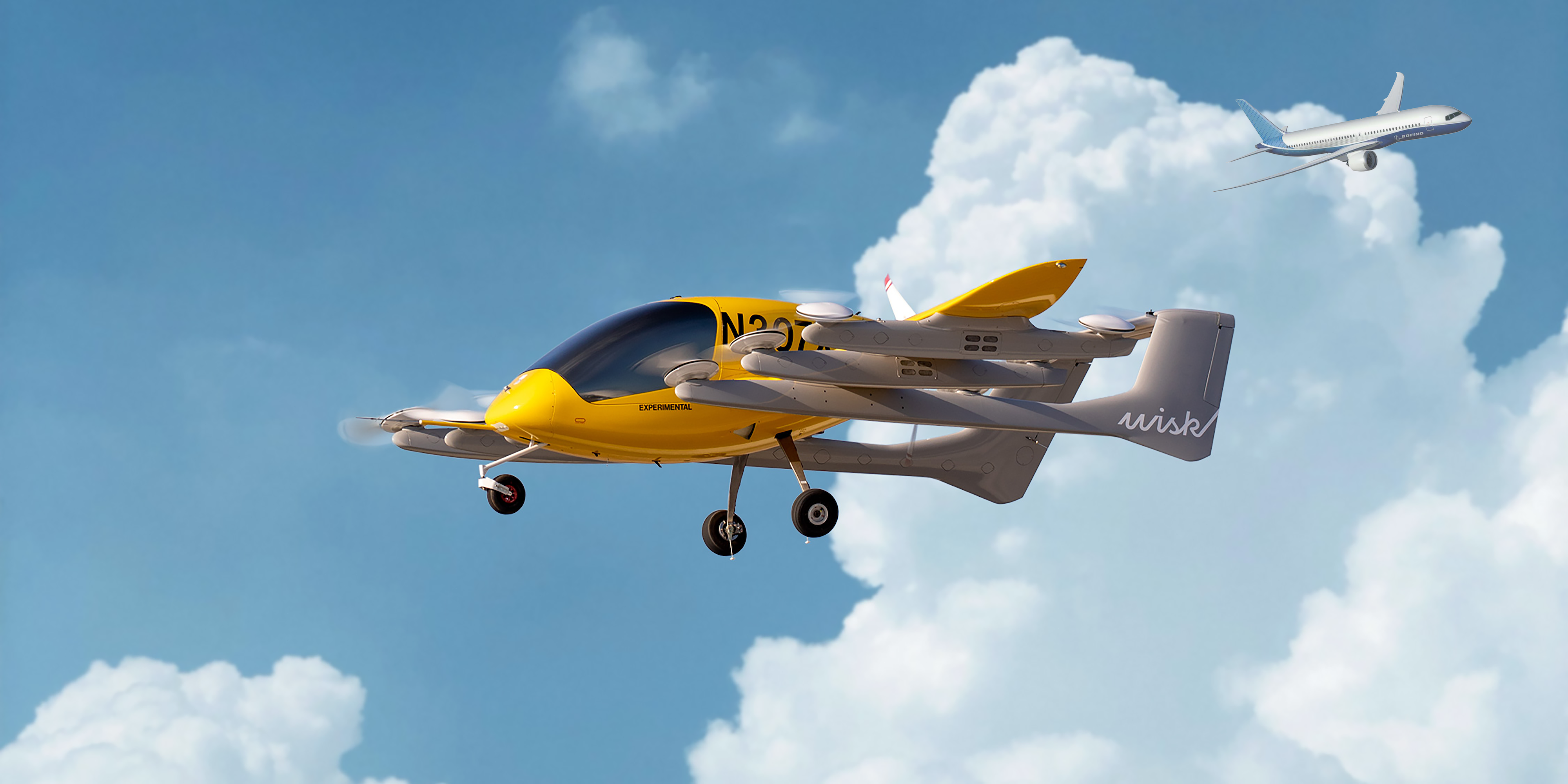Log-in here if you’re already a subscriber
Boeing is making a nearly a half-billion dollar bet on the future of autonomous aircraft, doubling down on funding for its joint venture with Wisk, the electric air taxi developer that aims to be the first to certify a fully-autonomous, passenger-carrying aircraft in the U.S. It’s the closest the aerospace giant has come to embracing a once-avoided moonshot development program with the potential to reshape the global air traffic system.
“Autonomy is the key to unlocking scale across all [advanced air mobility] applications, from passenger to cargo and beyond,” Boeing Chief Strategy Officer Marc Allen said in Wisk’s Jan. 24 announcement. “With this investment, we are reconfirming our belief in Wisk’s business and the importance of their work in pioneering all-electric, AI-driven, autonomous capability for the aerospace industry.”
The $450 million investment in Wisk comes almost precisely two years to the day after Boeing formally killed the development of its New Mid-Market and Future Small Airplane programs that would have spawned an eventual 797 jetliner.
Related: The daunting economics of taking an air taxi to work
It’s a strategy that shifts the development risk outside of Boeing’s four walls and will either catapult Wisk to the front of the AAM race or consign it to watching from the sidelines. And that’s assuming it can get its autonomy technology to the necessary level.
Eliminating the operating expense of a human pilot is likely the only way to make vertical flight affordable for the masses, but deploying self-flying aircraft at the scale that Wisk is envisioning — up to 14 million flights per year within five years of certification — will require changes to regulatory and airspace paradigms that are largely out of its hands. (The U.S. air traffic system currently handles roughly 16.4 million flights a year.)
Related: Like it or not, the foundations for single-pilot flying are being laid today
Most other Western eVTOL developers are planning to launch with piloted aircraft and gradually transition to autonomy. For Wisk and its major backers, it’s all or nothing — and if the startup can win a fully-autonomous certification, it offers Boeing a bridge to adapt those technologies to its next-generation airliners, a goal it has eyed since at least 2017.
Continue Reading...Subscribe to Continue Reading
Our award-winning aerospace reporting combines the highest standards of journalism with the level of technical detail and rigor expected by a sophisticated industry audience.
- Exclusive reporting and analysis on the strategy and technology of flying
- Full access to our archive of industry intelligence
- We respect your time; everything we publish earns your attention


